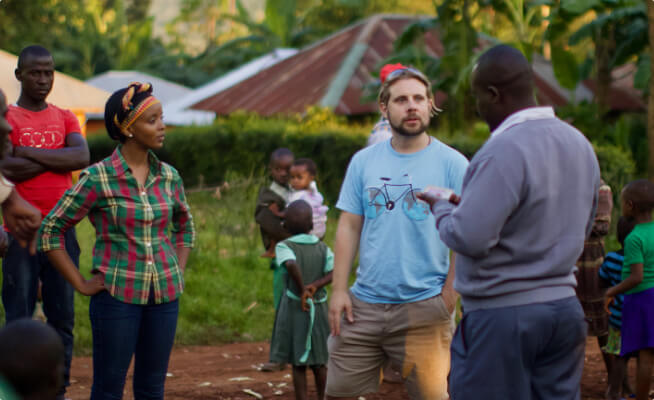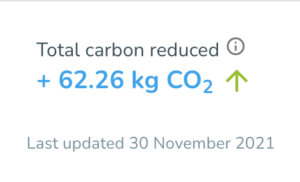Sunshine is one of humanity’s most valuable yet underutilized resources. Solar dramatically reduces carbon emissions and air pollution, as well as sustainably power hospitals, schools, community organizations, businesses and factories.
That’s the pitch from the Sun Exchange, the world’s first peer-to-peer solar leasing platform – and Waqa Studios’ means of funding renewable energy projects in emerging markets and offsetting our own carbon footprint.
Why do we want to offset carbon emissions?
Our work might not be particularly energy intensive, but clearly it does use some amount of energy to power the half a dozen computers and internet connections we use in the two geographic locations where we’re based. In both locations, a significant amount of that energy is renewable. It varies between 25% and 50% in both countries and we have little control over the market conditions that force our energy suppliers to change that mix. Then we have our development and production servers, which through intermediaries are ultimately provided by AWS or Google – again, we have no real control. Both has previous stated use of up to and beyond 50% renewable energy sources, but who knows what the true figure is?
Ultimately we have no way to calculate our carbon footprint with any accuracy, nor the resources to do so. We also have no control over the source of energy anyway. So what can we do?
We’re not going to be hanging solar panels out of our office windows and I’m not sure Apple make wind-up Macbooks, so we needed a way to outsource the offsetting of our own carbon emissions. With no real idea by how much we need to offset, it made sense to go with “as much as possible whenever we can“.

How does it work?
The Sun Exchange identifies schools, businesses and organizations in southern Africa that want to go solar. Their team works with them to build an implementation plan based on economic and technical viability, as well as social and environmental responsibility.
Once a project is approved, it is listed for investment to the public. That can be you as an individual with $20 to spare, or a large organization with many times that. Each project is open to everyone on a first come first served basis.
Each project also has a target number of solar cells to sell, and you can buy as many or a few as you like. Once all the cells are sold, engineers at Sun Exchange move quickly to get them installed and generating power. Your cells are displayed on your own dashboard across multiple projects, and key data is displayed, such as:
- the clean energy your solar cells generate (KWh)
- the amount of carbon you have offset (kg CO2)
But it can be so much more than a social good.
Typically, so great is the amount of renewable energy that is generated that much of it would go to waste – after all, the sun’s output is constant during the day, but human energy use isn’t. Built into the Sun Exchange model is an additional benefit… using that free and clean surplus energy to mine freedom money, Bitcoin.
Over a decade or so, eventually so much energy is generated that it surpasses your initial investment… and so that extra energy is converted to bitcoin and is divided over each month and paid back to you. In the end, not only do you offset carbon and fund renewable energy projects, but you’re doing so for free. The Bitcoin that is mined and returned to you monthly can then be spent as you see fit, or plowed back into the next project to compound your contribution!

As you can see, we’re only just getting started. But the plan of “as much as possible whenever we can” is well underway. With 211,000 sats ($120 USD) waiting to go into the next project, we’re looking forward to seeing what we can achieve in 2022!
You can find out more about the Sun Exchange here. Or you can ask me for more information!

